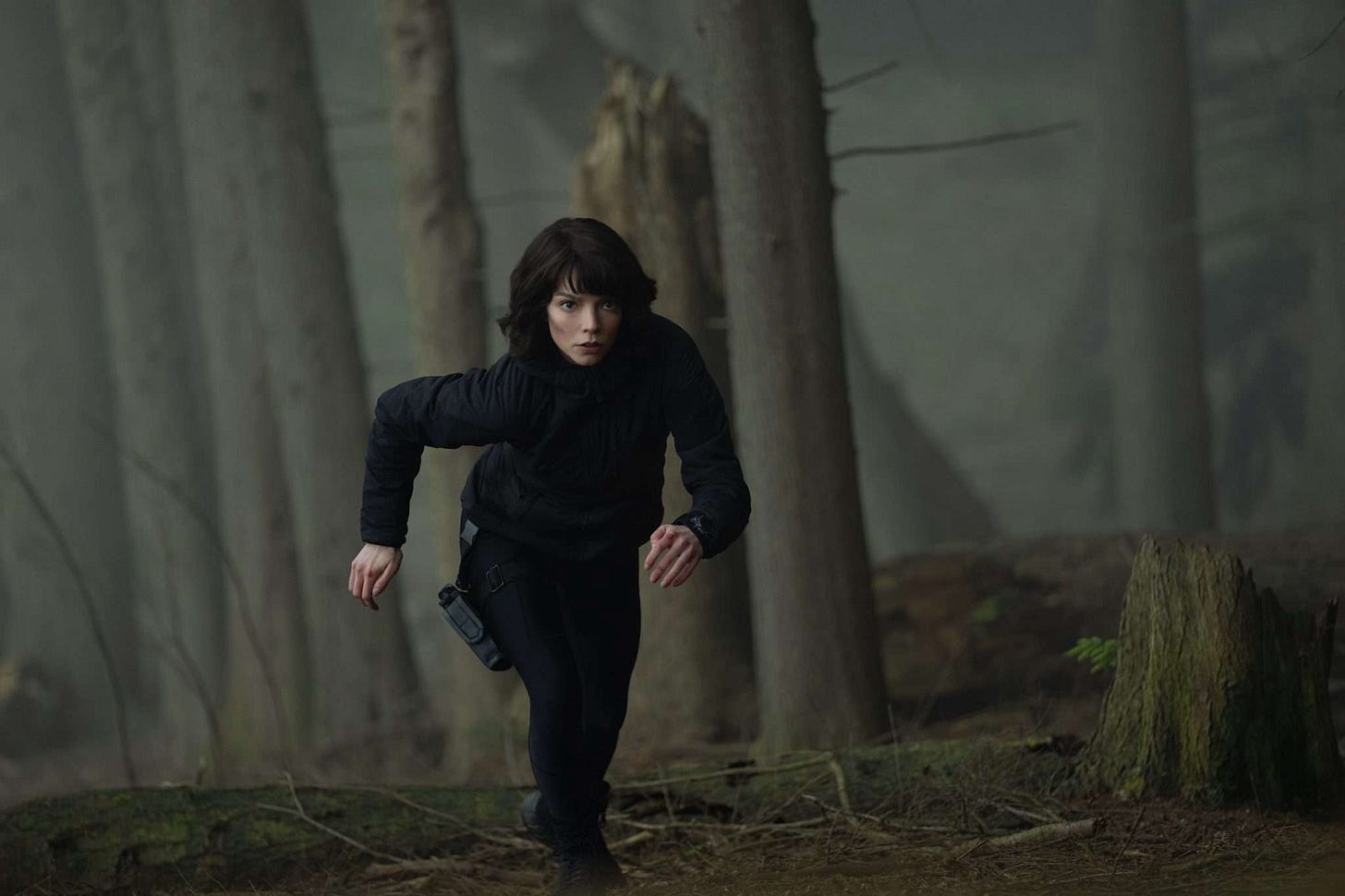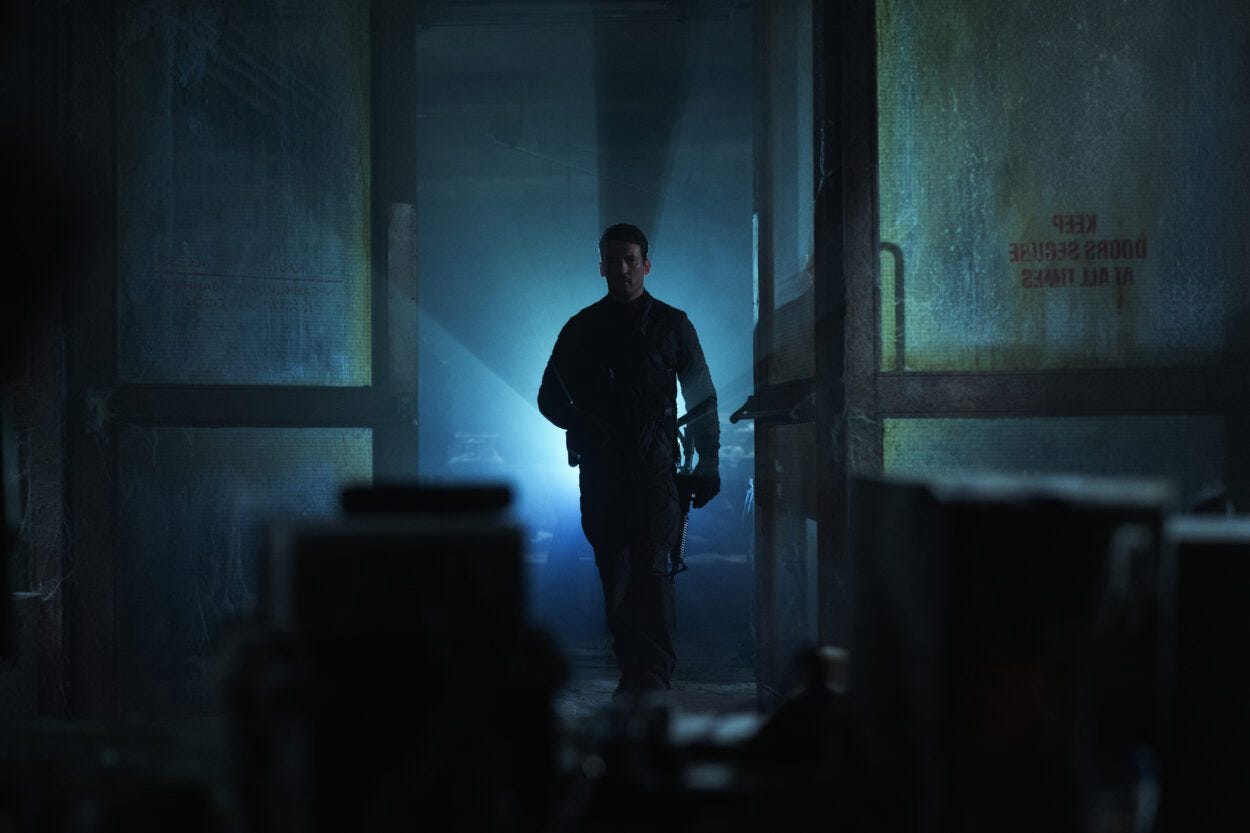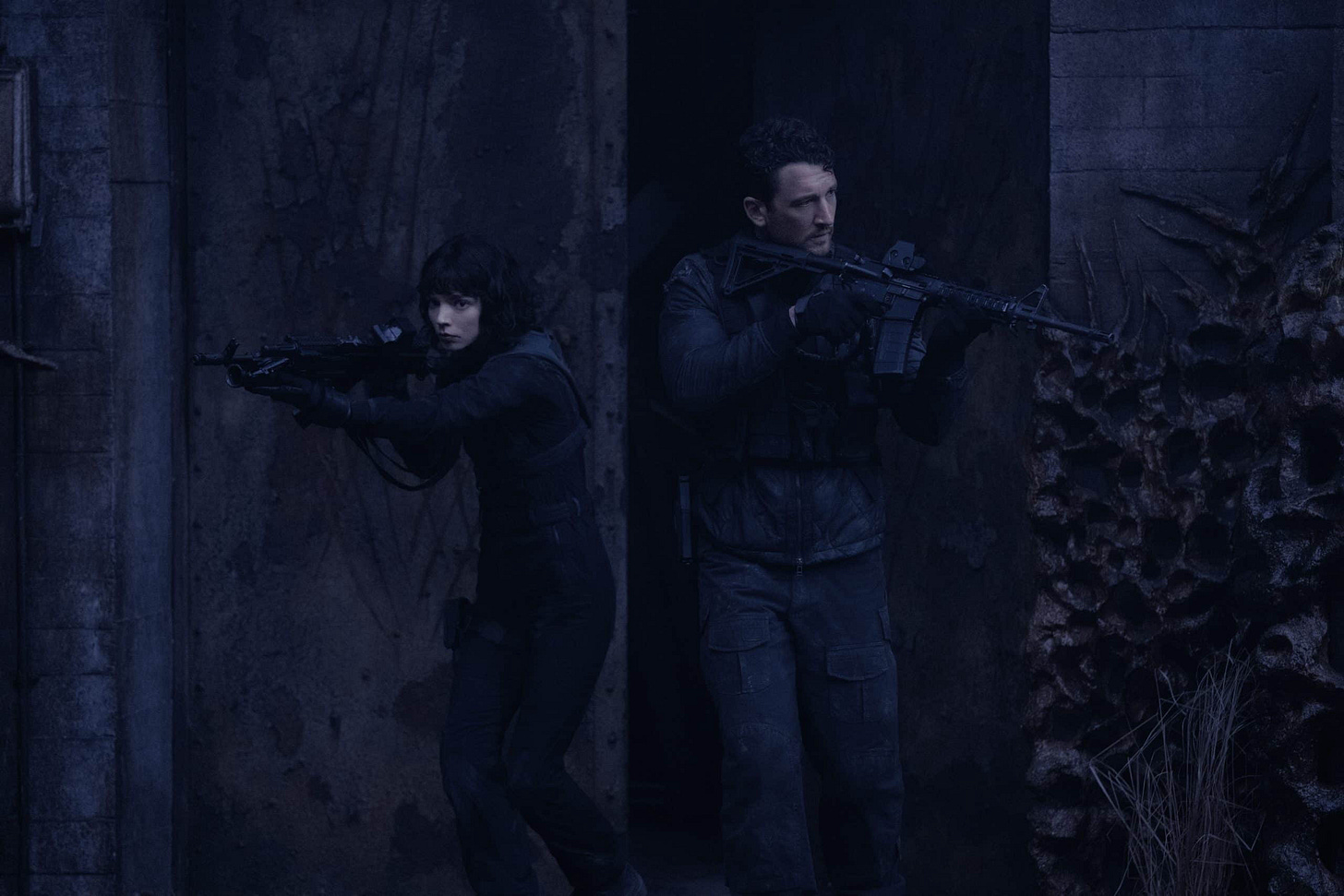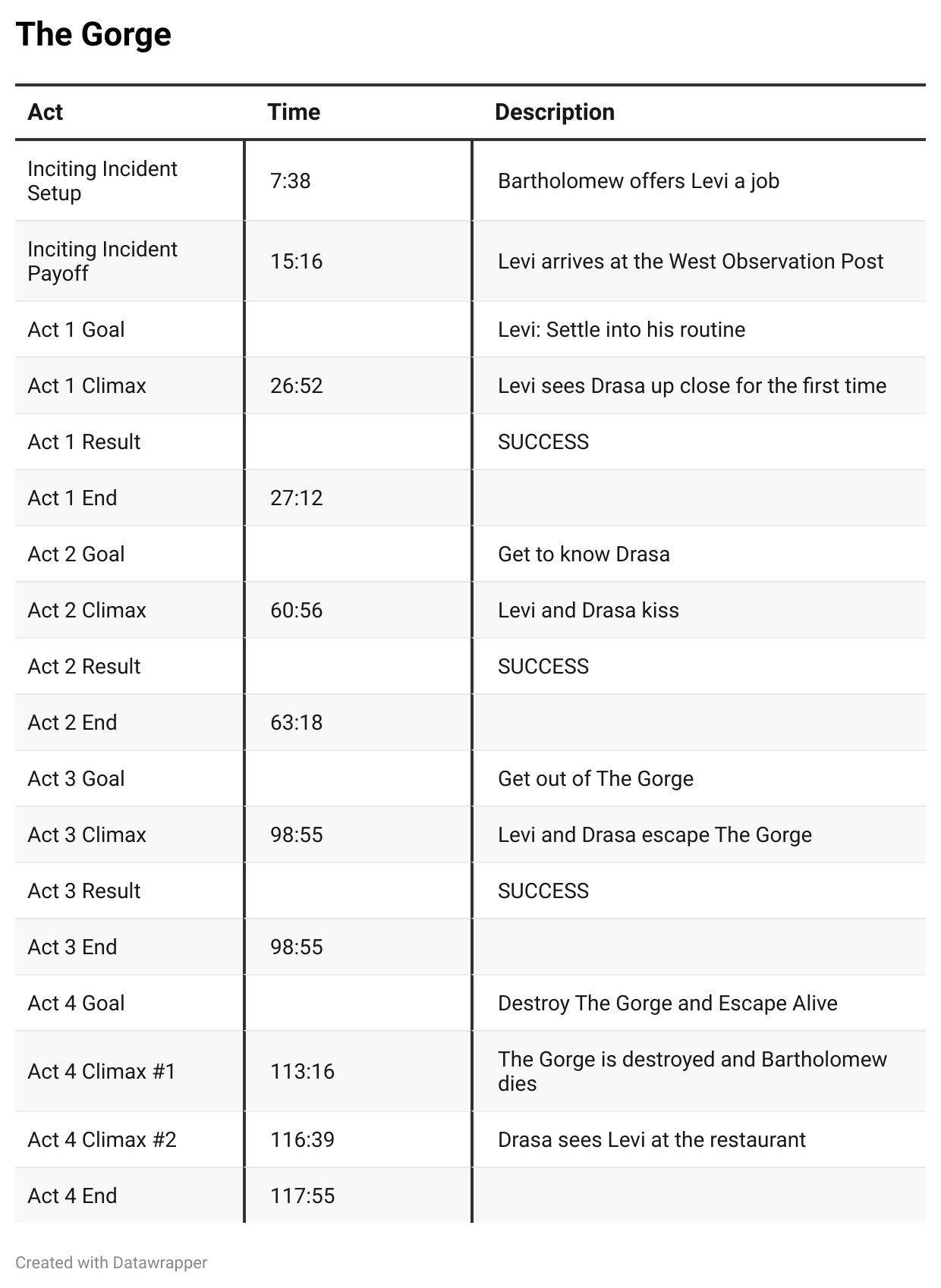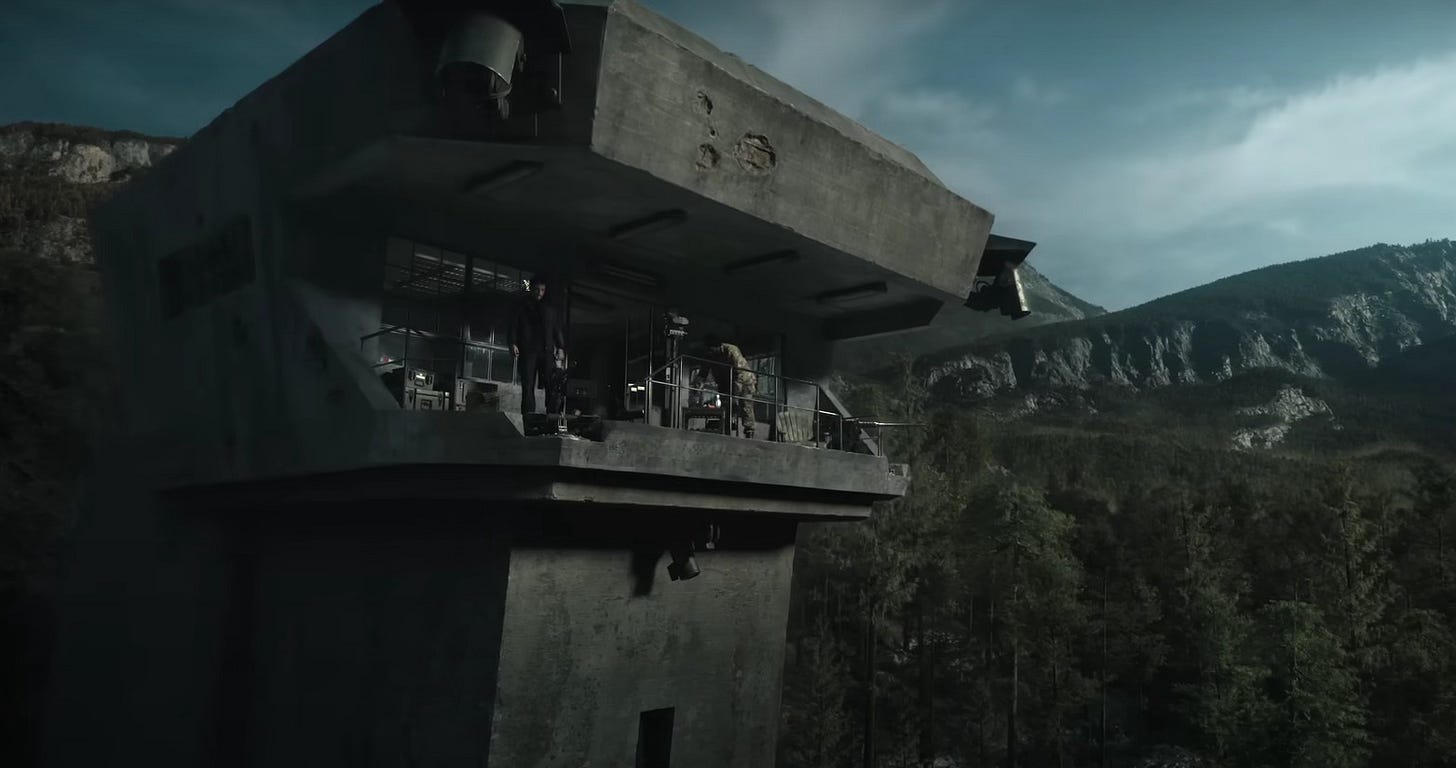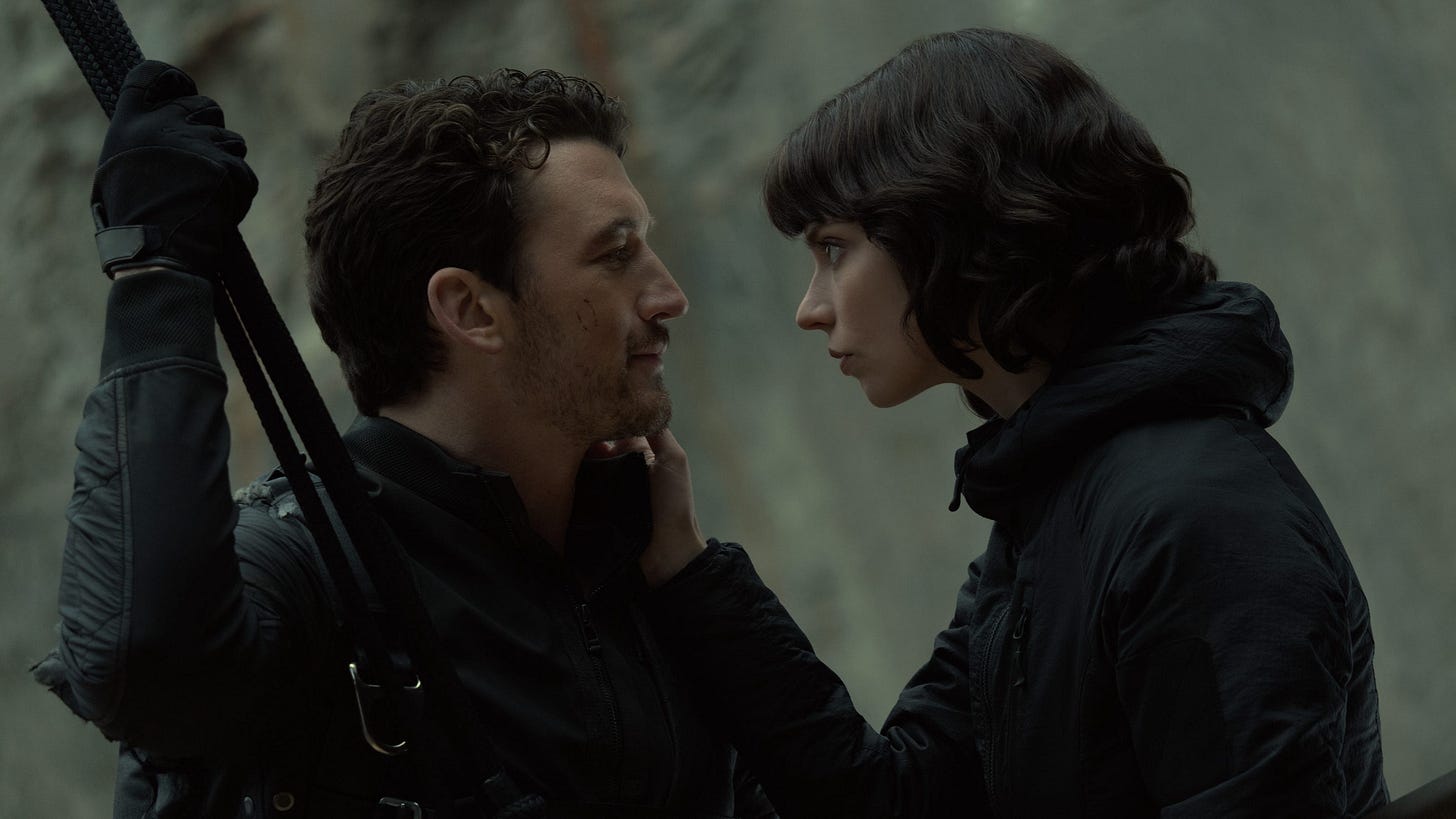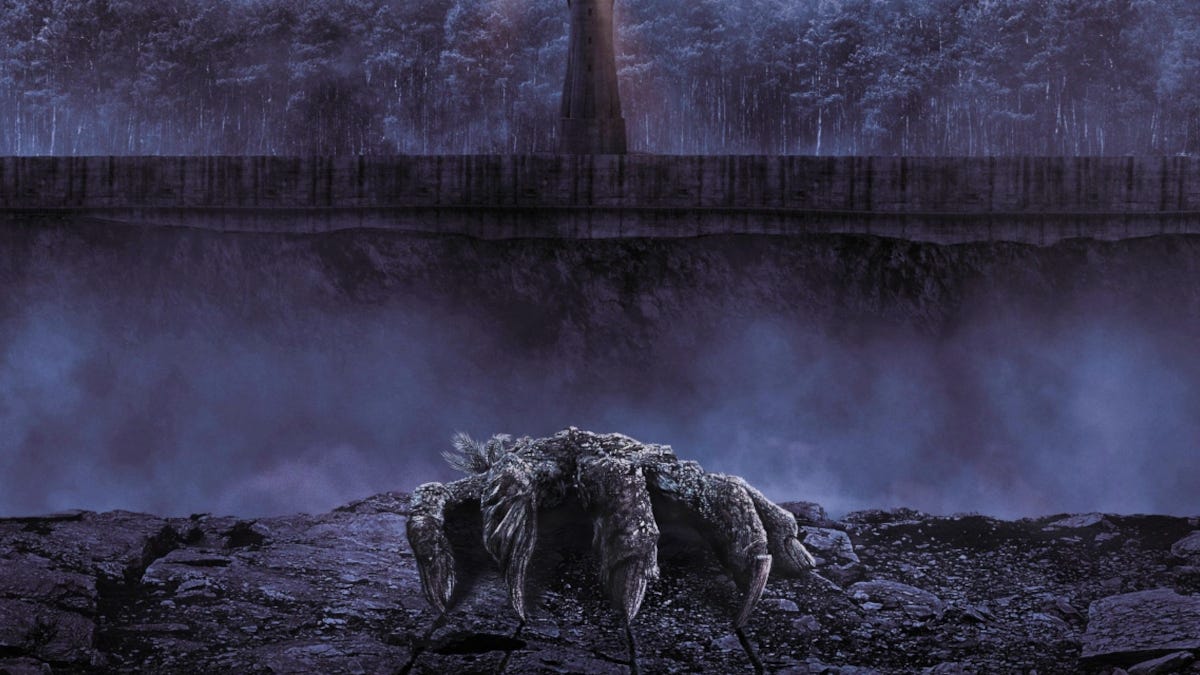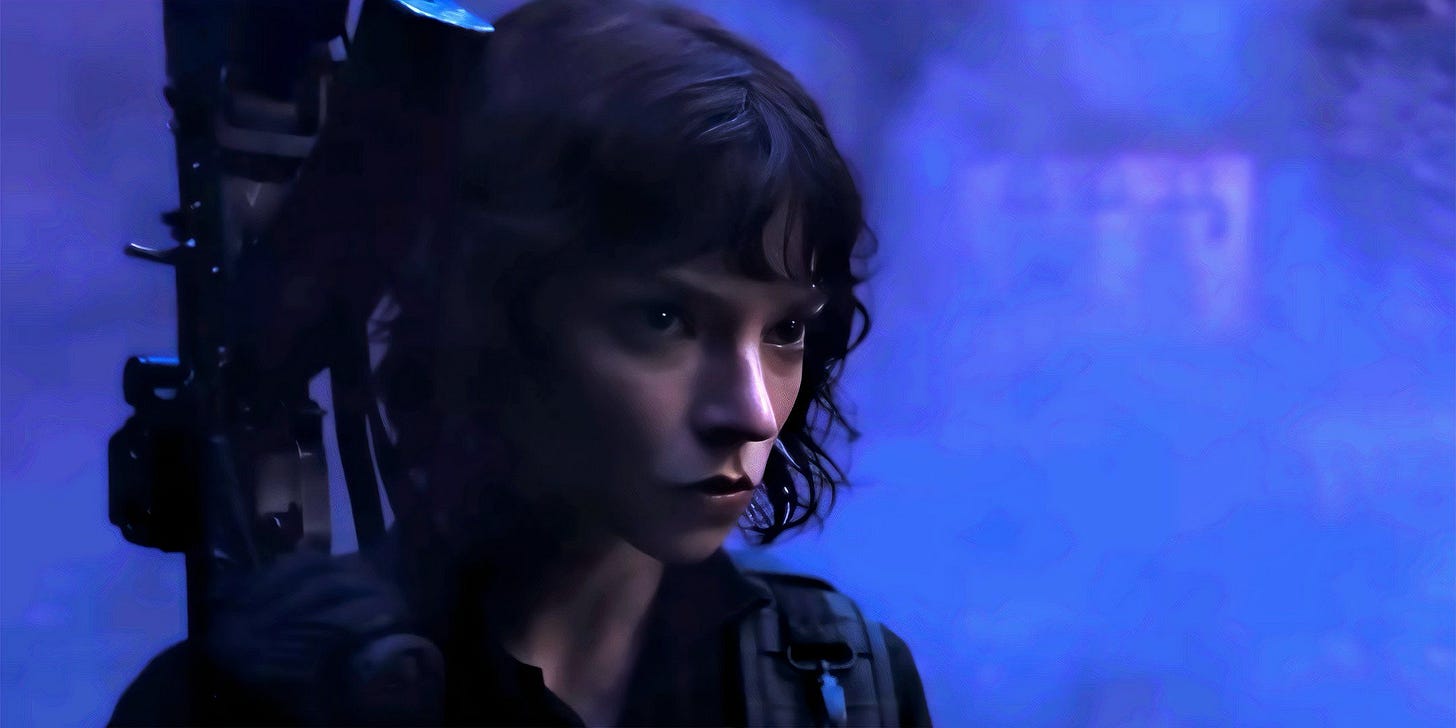The Gorge
Welcome to my analysis of The Gorge (2025), the newest feature on Apple TV+, starring Miles Teller and Anya-Taylor Joy, and directed by Scott Dickerson. The Gorge has received mixed reviews, and has scored pretty average scores on Letterboxd. I actually enjoyed the film and found it a fun, engaging action romance, with a little bit of cheese. More importantly, however, I noticed some interesting structural elements in the film, some of which harken back to older action classics, with other elements being things I’ve never really noticed before.
As always, these breakdowns contain SPOILERS, and are only recommended if you've already seen the movie. You can check my introduction to these breakdowns, to get an overview of my process and philosophy.
Feel free to let me know what you think in the comments below!
The Basics
Director: Scott Dickerson
Writers: Zach Dean
Release Date: 2025
Runtime: 127 Minutes
IMDB: https://www.imdb.com/title/tt13654226
Movie Level Goals
Protagonist: Levi
External: Survive The Gorge
SUCCESS | FAILURE | MIXED
Internal/Relationship Goal: Be with Drasa
SUCCESS | FAILURE | MIXED
Goal Relationship: Internal depends on External. Levi must survive The Gorge in order to be with Drasa
Three Observations
Feel free to watch the video or read the (slightly edited) transcript below.
Observation #1:
The first observation centers around our Act Two, which is an unusual Act Two. But to set that up, we need to run through what happens in Act One and where the movie seems to be headed. We start the movie with Levi being offered a job by a woman named Bartholomew, played by Sigourney Weaver. This job is unusual. He is sent to this observation post, this really tall tower somewhere in Eastern Europe or Scandinavia—we don't really know. When he arrives at this giant tower called the West Observation Post, he's told that his job is to simply keep an eye on this Gorge and make sure that nothing that lives down in the Gorge gets out and escapes. At that point, we don't really know what's in the Gorge. Levi arrives, settles into his routine, and at the end of Act One, which is around the 27-minute mark, he happens for the first time, using the binoculars that come equipped with the tower, to look across and see his counterpart in the Eastern Observation Post. That counterpart is Drasa, played by Ana Taylor-Joy. It's a climax because we are setting up a romance. We have an action-romance movie playing out here.
Normally in action romances, all of the main act goals or sequence goals, however the movie is structured, are still generally set up around external action-oriented goals and the romance tends to be threaded or woven through those goals and plays a smaller part in any structural aspect of the movie in terms of goals and climaxes. The Gorge does things a little differently though. When Act Two starts, Levi's goal is to get to know Drasa. There is some action in Act Two, but largely Act Two is driven by an internal goal—that is, to have a relationship with Drasa. They meet cute, signal each other because they're on opposite sides of the Gorge, celebrate Christmas and birthday stuff together, and eventually, Drasa invites Levi to cross the Gorge to have dinner, which he does. At around the 60 or 61-minute mark, the Act Two climax, Levi and Drasa kiss for the first time, and their relationship is sealed at that point.
What's interesting is that the movie slows down at Act Two. This is usually a place where we have a lot of developing action, where we have subplots being set up, and we do have a subplot here, but it's not an action-oriented subplot. It's a romance subplot that's tied to Levi's internal goal of having a relationship with Drasa, rather than related in any way to his external goal. It's one of the first times I've seen an Act Two really focus on an internal goal or a romantic subplot in the way that The Gorge does.
Observation #2:
My second observation is a little more simple and straightforward, and one that you've probably seen in movies before, and that is the very short length of the final act of The Gorge. The Gorge has four acts, so we've already talked about Act One and Act Two. At the beginning of Act Three, Levi and Drasa end up falling into the Gorge, and as you might imagine, their goal is to get out of the Gorge. The Gorge is filled with all kinds of bio-enhanced, bio-poisoned creatures and human beings and all kinds of crazy stuff. Levi and Drasa must work together to escape the Gorge. Around the 99-minute mark, they are successful at doing that, and that sets up our final Act Four. They've gotten out of the Gorge. Well, what do they need to do? They realize that if they're going to leave, the creatures could escape the Gorge, and that would endanger humanity.
They realize they have to destroy the Gorge and escape alive. As this is happening, our character from the beginning of the movie, Bartholomew, arrives on the scene, and we have come to realize that she works for a corporation that is doing biological testing on these creatures to try to create super-soldiers and other things of that nature. We have a dual antagonist. We have the creatures in the Gorge, but really once they get out, we have Bartholomew and her soldiers who are trying to prevent Levi and Drasa from escaping the Gorge, from destroying the Gorge, and from getting away together. This is a pretty straightforward, action-oriented goal that drives the movie. In fact, if we end Act Three around the 99-minute mark, the Act Four climax of destroying the Gorge happens about 15 or 16 minutes later. It's very quick and very fast. The external goal of destroying the Gorge and surviving takes place quickly, and then our last three or four minutes are handled in a clever way because we don't know whether Levi has succeeded at his internal goal of being able to be with Drasa. That's because after the Gorge is destroyed, there's a huge fireball. We know that Drasa escapes, but we don't know whether Levi escapes. In an interesting twist, the movie aligns itself with Drasa in the last few minutes as she escapes, and she ends up becoming a waiter at a seaside restaurant somewhere on the Mediterranean. The big question is, did Levi survive? A couple of minutes later, he shows up at the restaurant, they're reunited, and Levi achieves his internal goal of being with Drasa.
We have a very short 20-minute final act. Now, having said that, it's pretty common for final acts to be the shortest act in a movie because we don't have any new subplots to set up. We’ve got the protagonist versus the antagonist, and the whole point of that last act is to wrap things up and get resolution.
Observation #3:
That final act climax of Levi and Drasa ending up together leads me to my third observation, and that is this whole setup of an action-oriented external goal and a romantic internal goal is reminiscent of older movies. It's not really a structure we see that much anymore, because I think romance is something, especially in action movies, that has, to a large extent, disappeared or at least we don't see nearly as often. If we go back to movies of the '80s and '90s, for example, we see this setup all the time, where we have the external goal for a male protagonist to defeat the enemy, and if he's successful at that goal, that means he achieves his internal goal, which is to be with the person he is in love with. The movie that really comes to my mind that has a similar structure is Die Hard, where our action hero must survive his ordeal in order to be with his romantic partner. In Die Hard, we've got John McClane, played by Bruce Willis, and Holly Gennero McClane, played by Bonnie Bedelia, and McClane's goal is to defeat Hans Gruber and survive this hostage situation so that he can be reunited with his estranged wife. That's exactly what happens at the end of the movie.
This is a little old-fashioned, and we can't really do that entire formula because if we go back and look at Die Hard, one of the things we’ll notice is, despite the fact that Holly is a pretty solid and strong female character, she's largely sidelined for all of the action. She is a hostage. She does a couple of clever things, but for the most part, it is McClane who is doing all of the action throughout the middle part of the movie and certainly into the climax, and Holly mostly disappears. I think in today's movie-watching climate—and rightly so—we'd be really disappointed to see a female character sidelined in that way. In The Gorge, Anya Taylor-Joy becomes a much more active participant in all of the action. She kicks ass just as strongly as Levi, and especially when we get into Act Two and Act Three, she is an equal participant. They're basically dual protagonists at that point in all of the action that unfolds. The two characters team up and work together as action stars. When we get to the end of the movie, of course, we align ourselves with Drasa rather than Levi to see whether Levi is going to show up at the end.
Despite that, Levi is still our protagonist, and we still have that basic old-fashioned formula, which is an external action-oriented goal that, when it's achieved, leads to the success of an internal romantic goal, but it's been updated for the 21st century, for the 2020s, by making Ana Taylor-Joy's character a lot more active.


